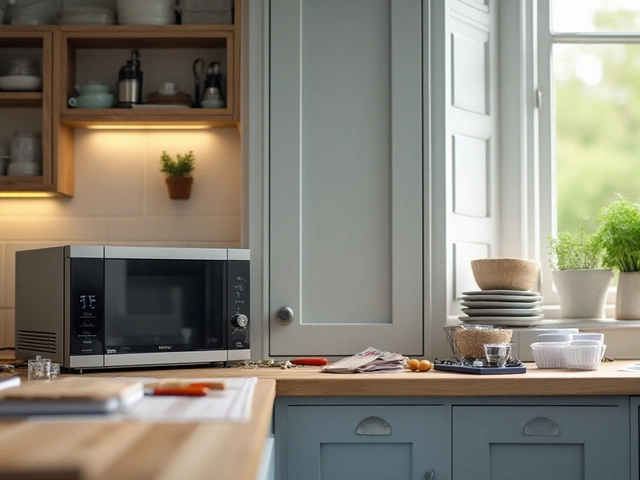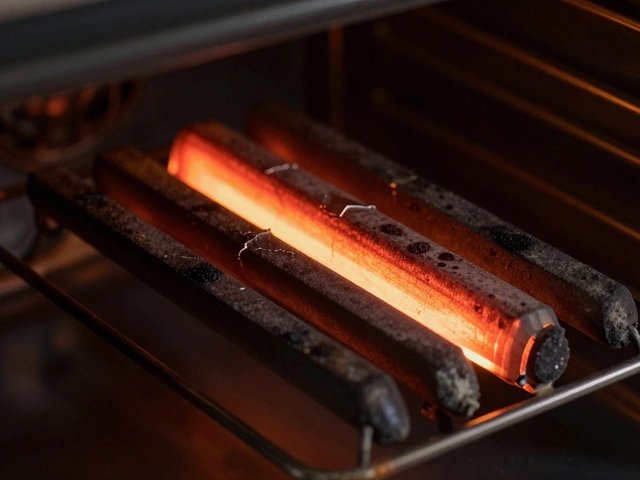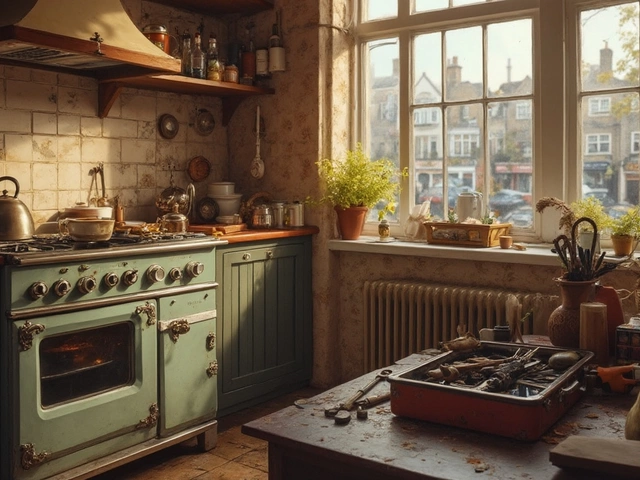Staring at a broken washing machine, a finicky oven, or a fridge that won’t cool? The first question that pops into most heads is: should I call a pro or just buy a new one? It’s a classic dilemma that mixes cost, convenience, and a sprinkle of DIY bravery. Below you’ll get straight‑to‑the‑point advice that helps you weigh the options without pulling your hair out.
Cost of repair vs. price of a new unit. Get a quick quote from a reputable local repair service. If the repair bill is more than half the price of a new appliance, it’s often cheaper in the long run to replace it. Remember to factor in any warranties that come with a new model – they can save you from future headaches.
Age of the appliance. Most major appliances have an expected lifespan: washing machines 8‑12 years, fridges 10‑15 years, ovens about 13 years. If your gadget is nearing or past that range, internal parts are likely wearing out. Even if the repair cost looks good now, you may face another breakdown soon.
Frequency of breakdowns. One glitch can be a fluke, but repeated repairs signal deeper issues. Keep a log – if you’ve called for service three times in a year, it’s a strong hint that replacement is smarter.
Energy efficiency. New appliances usually consume less electricity or gas. If an old fridge is chugging power, swapping it for an energy‑star model could shave off a noticeable chunk of your utility bill, offsetting the upfront cost.
Availability of parts. Some older brands stop making spare parts after a few years. If the part you need is rare or custom‑ordered, waiting for it could add weeks – and more cost – to the repair process.
Washing machines. Look for leaks, noisy spins, and error codes. A simple pump or belt swap can cost under £100. If the drum is rusted or the motor fails after 10 years, it’s probably time for a new, more efficient model.
Refrigerators. Warm spots, noisy fans, or a freezer that won’t freeze are common signs. Door seals are cheap fixes; a faulty compressor, however, often means replacement, especially if the unit is older than 12 years.
Ovens and hobs. An element that won’t heat can be replaced for around £50‑£80. If the control board is dead or the oven door won’t close, weigh the repair cost against a new, convection‑ready oven that cooks faster and saves energy.
Dishwashers. Check spray arms, filters, and the pump. Minor clogs are DIY fixes. If the motor or heating element fails on a machine older than 8 years, a fresh, quiet dishwasher may be the better bet.
Water heaters. Sediment buildup can cause noise and slower heating. Flushing the tank is an easy fix. Corroded tanks or failing thermostats in units over 10 years usually signal replacement, especially if you notice rust in the water.
Bottom line: catalog the symptoms, get a solid repair estimate, and compare it with the cost of a new, energy‑smart model. If you’re still stuck, ask yourself if you’d mind the appliance being out of service for a few days while you wait for a part. A short‑term inconvenience can be worth a longer‑term savings.
By using these simple checks, you’ll make confident choices that keep your home running smoothly without breaking the bank. Happy deciding!

Thinking about fixing your 7 year old refrigerator? This article breaks down the real costs, reliability, and what you should watch for before you pay for repairs. You’ll find clear tips on when it’s smarter to repair or replace, how much you’ll likely spend, and some key things most people forget to check. Get the real scoop from an expert so you don’t waste time or money.

Microwaves are essential in modern kitchens, but when they break down, deciding whether to repair or replace them can be tricky. This article explores the factors that influence repair decisions, common microwave issues, and when it's more economical to buy a new one. It also offers tips on maintaining your microwave to prevent future problems. Understand the costs involved and make an informed choice on your kitchen appliances.

Replacing an extractor fan might seem challenging, but with the right tools and some guidance, it can be done efficiently. This guide outlines the process of replacing an extractor fan, from identifying signs it needs replacement to understanding how to choose the right model. Learn practical tips for handling installation and maintaining safety during the project. Make this task more approachable with easy-to-follow steps designed for beginners.

Learn how to tell if your electric oven element is bad with simple visual checks and a multimeter test. Save time and money by diagnosing the issue yourself before calling a repair technician.

Deciding whether to repair an electric oven after five years can be tricky, especially with advancing technology and evolving household needs. This article explores the practical aspects of oven repair, including cost-benefit analyses, common issues, and DIY tips to help inform your decision. By understanding key factors like repair costs versus replacement options, you can make an informed choice. Learn how to assess the condition of your oven and get tips on when professional help might be needed.

When your water heater only puts out cold water, it’s more than just annoying—it can point to real problems inside the unit. This article breaks down the most common reasons behind a water heater that refuses to warm up, from tripped breakers to busted heating elements. You’ll find tips on quick checks you can do at home before calling a pro, plus some unexpected facts about how water heaters really work. Knowing what’s wrong can save you from a frigid morning shower and a giant repair bill. Get ready to tackle that cold water problem with practical advice you can use right away.